Steve Scott knows the importance of good habits.
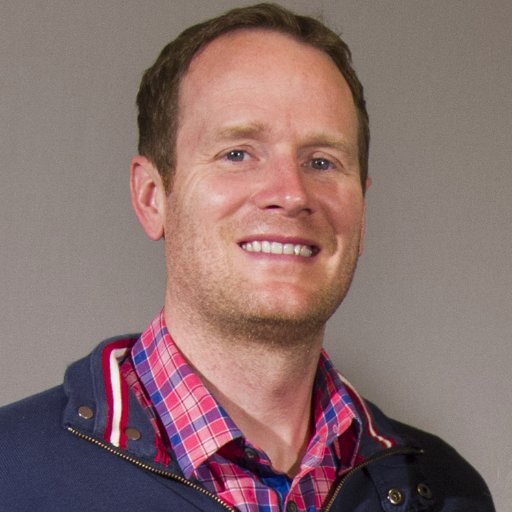
The creator of DevelopGoodHabits.com strongly believes in the concept of setting achievable goals, and then creating daily routines to move toward those targets.
But, until 2004, Steve "didn't give a crap" about self-improvement. Without a job–and at a point where he had "no outs" other than making his Internet business work–Steve faced the reality that he had to change who he was on the inside.
Since then, he's become a highly successful self-publishing author, with a significant following.
And it's all thanks to good habits.
20 questions with Steve Scott
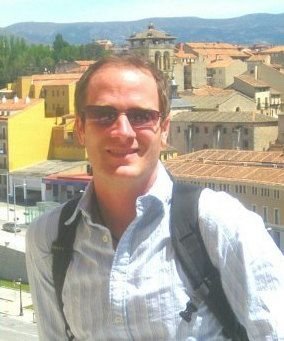
1 - How would you describe yourself in one sentence?
Steve - Someone who is not afraid to try a lot of things, make a lot of mistakes along the way, and then course-correct from there.
2 - For those who aren't aware, what is "Develop Good Habits" all about?
Steve - I started the website because I believe in the idea that habit development is a constant iterative process. It's not like you wake up one day and you're awesome at everything. It's more about trying to get a little bit better every single day. That's something I challenge myself to do: always build positive habits. Along the way, I try to share a little bit of what I've learned with readers.
3 - Is self-improvement something that's always been important to you. Or do you remember a certain age or life event, which triggered that interest?
Steve - I really didn't give a crap about it until 2004. I was 30 at the time. I really had no direction in my life. I had an idea of starting an Internet business, but I didn't have the dedication of working at it every single day. I arrived at a point where I had no job. I had to make the business work; there was no other option. So I had to change who I was on the inside. Every single day I had to wake up and work at my business and just get things done. I think, from there, I started building habits that helped me focus on what I needed to focus on. I didn't really have a passion for personal development until I recognized there was something wrong with who I was on the inside.
4 - Do you believe all successful people have gotten where they are thanks to good habits?
Steve - Absolutely. In the last number of years I've met with lots of successful entrepreneurs and they all seem to have their own different kinds of habits that help them focus on their businesses.
I really haven't met one successful person who doesn't have their life together on some level just by doing the same positive things over and over.
5 - Looking back, which of your personal habits has resulted in the most positive change in your life?
Steve - I would say three things.
Exercise - I try to exercise every single day, whether it's biking, running, swimming or simply walking. It gives me the mental clarity to tackle any problem. I've been exercising for almost 30 years now, so that's one of the good things I've done throughout my life.
A focus on deep work - Only in the last couple of years have I recognized the power of this. That kind of dovetails onto what Cal Newport talks about in his book, Deep Work, the idea that you need to proactively set aside time to focus on the one thing that really matters to your business. For me, that's writing. But if you're a podcaster, that's focusing on putting really good quality podcasts out. It really is a matter of being ruthless with your schedule and making sure you leave enough time to work on the stuff that really matters.
Tracking and analyzing time - I consider myself pretty anal retentive where I'll actually start a stopwatch every time I start a task. There's a helpful app called aTimeLogger. So I create about 10 to 15 different buckets for my time. One bucket is writing, another bucket is conversations, a third bucket is e-mail. At the end of every month, I look at where I spent my time in different categories. If I see that I'm not spending enough time in the two most important activities for me, which is writing and book marketing, then I try to make sure that moving forward I get better about how I'm spending my time.
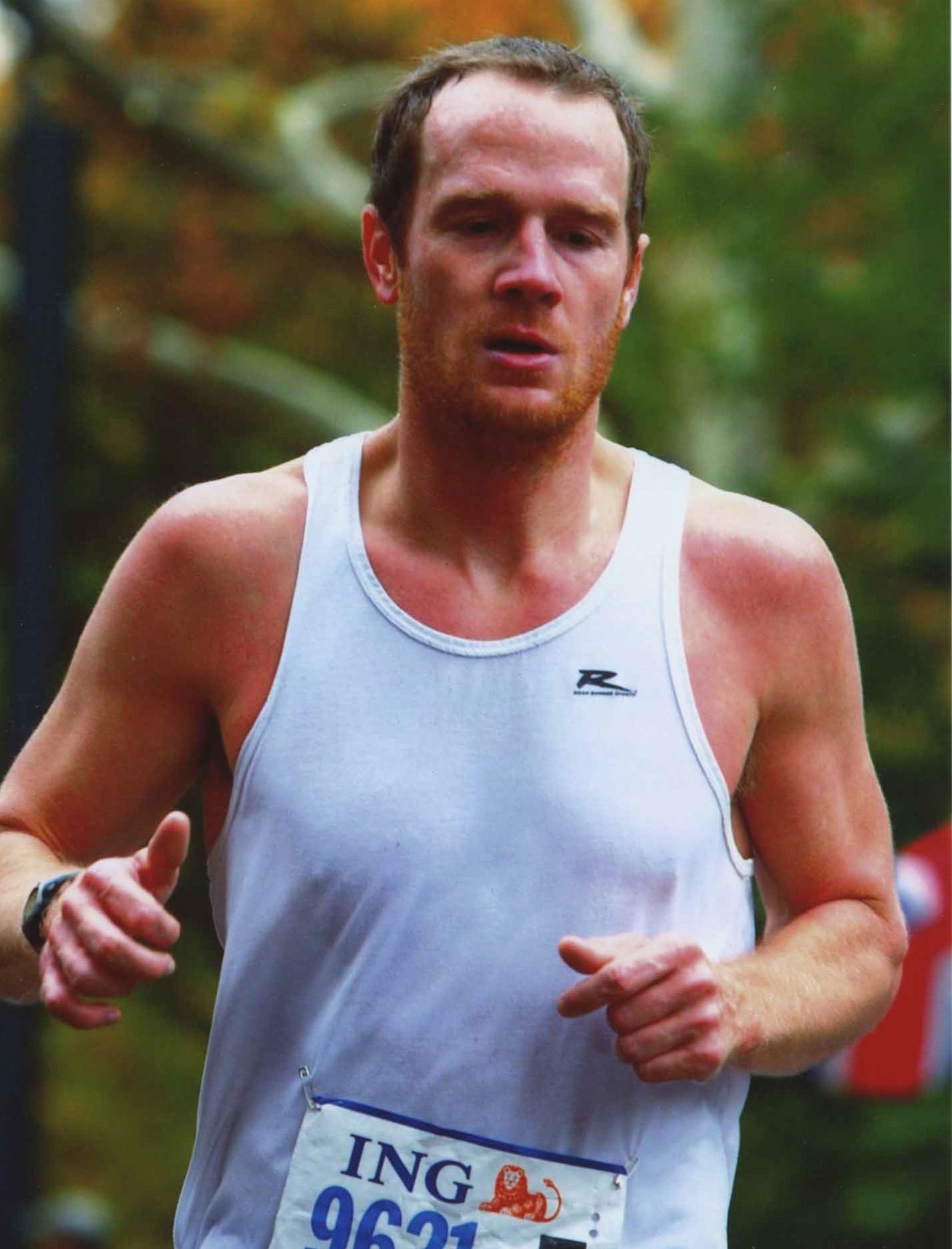
6 - Are there any bad habits you used to be guilty of that you've overcome? If so, which are you proudest of overcoming?
Steve - One of them was working too hard. For a long time I was someone who–as much as I talk about tracking your time–created a mindset of: I want to beat last month, I want to work more, I want to get in those extra five to 10 hours. What I recognized is: that's taking time away from my family, my exercise and my general enjoyment. So I've become more mindful of the fact it's OK to take a step back and to spend time with my family.
The other important habit that I've gotten better at is being able to not procrastinate on important things. I've always been very much work-minded, but a lot of times I'd let other things slip through the cracks. I let my taxes go for eight months one year, which had a negative financial consequence. That gave me a wake-up call that I'm good at the business stuff, but I probably shouldn't procrastinate on all this other life stuff.
7 - When it comes to social media, do you see mostly good habits or bad habits out there?
Steve - Personally, I consider social media mostly a bad habit. What was really eye-opening was a book called Hooked. Nir Eyal really did a good job of explaining how Facebook and all of these other social media sites are designed to almost treat you like a rat, where you're constantly looking for the next like or comment on your post. So I really consider it mostly a bad habit with a small caveat that: if you just need 10 to 15 minutes of relaxation to see what your friends are up to, that's OK. But at the end of the day, when you have a bunch of other stuff to do, I don't think it's good to open up your phone and spend 30 or 40 minutes on Facebook.
I do see a little bit of benefit, but I'd say social media should be the little bit of cake after a good day of effort, instead of it being your entire life.
8 - What tips or advice would you give someone who is interested in self-publishing?
Steve - That's hard to answer, because it's something that requires 30 to 40 different things to do. On my blog and podcast I have a massive amount of catalogued stuff. But here are four quick tips:
Find a niche - I'm a firm believer in the three Ps of self-publishing: passion, profitability and personal experience. For passion, you don't necessarily need to be thinking about the topic all day long, but you should at least have a general interest in it. For profitability, you want to make sure people are buying that type of content on Amazon. For personal experience, you at least want to have a background in the particular topic you're talking about. If you're giving medical advice, you better be a doctor: don't try to make shit up.
Inch-wide, mile-deep - Instead of trying to write the biggest book on golf, it's better to write short books on various aspects of golf. So one could be: how to improve your short game. Another would be: how to drive the ball. Take your subject and break it down into micro-topics, and each micro-topic should be its own book.
Build a solid e-mail list - An e-mail list is the most important tool you can use to sell books. I'm a firm believer in doing anything you can do to get people to join your e-mail list.
Consistency - Make sure you're continuously publishing content, just like you would with a blog or a podcast.
I'm not going to lie: it's very hard. But I find self-publishing very rewarding.
9 - You produce a lot of content. What is the most important habit you've developed when it comes to writing?
Steve - There are concepts that I didn't come up with, but one is a mini habits concept and one is a tiny habits concept.
The basic logic is people tend to set these really massive goals on a daily basis, and they almost get overwhelmed by the goals that they set, so they don't even get started. For example, if I set a goal that I'm going to write 3,000 words every day, I might do that for a day or two, but by the third or fourth day, I might be tired and decide to skip a day. But if you create a tiny habit or a mini habit, you set this really doable goal that you can accomplish on a daily basis. The example they give is to write a paragraph or a sentence. I'm at the point where I feel pretty confident that I can commit to writing for 30 minutes every single day...and, for the most part, I'll write for 30 minutes, and if I get into the groove–which is pretty often–I'm able to write upwards of an hour or two hours. So it's all about building a habit to overcome that initial resistance.
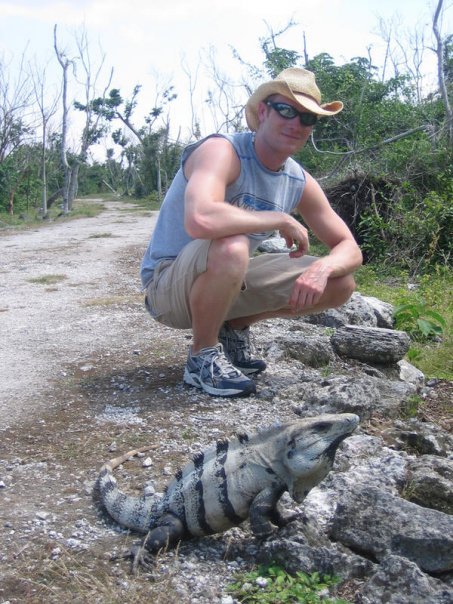
10 - In another interview, I heard you say, "If you give yourself no outs, you can make stuff happen." What do you mean by that?
Steve - With any habit, a lot of times it's easy to come up with excuses for why you don't want to do it. I'm a firm believer in building habits and removing any possible excuses for not doing it. For instance, if we're talking about exercising, a lot of times people make excuses like, "it was crappy weather outside," or, "I didn't pack the right clothes," or, "I got busy at work and I just didn't have the time." I'd challenge people to build habits where they have no excuse. So, for the weather excuse, check the forecast in the morning and plan to get outside when the weather is favorable. Pack every possible clothing item you might need and keep an extra bag in your car in case you forget to pack your gym clothes. It's a matter of creating little systems and trying to get rid of possible excuses.
11 - What does it mean to "test drive" a habit?
Steve - A lot of people tend to tell themselves, "I can't do that habit for the rest of my life."
I challenge people to take that habit for a test drive for 30 days. You don't have to tell yourself you're going to do it for the rest of your life, just try to do it for 30 days and then see what happens.
12 - Who inspires you?
Steve - My dad and my mom.
My dad for the "think big picture" type of mindset.
My mom for the fact that she's someone who showed up at every possible event I had when I was younger, and worked at things on a day-by-day basis.
I feel I've taken a bit from both of them.
13 - What is your biggest pet peeve?
Steve - Lateness.
I don't mind people who are a couple of minutes late, but people who are chronically late, and stroll in 15 minutes late with no excuse, just, "Yeah, I'm here..." that shit drives me nuts.
14 - What scares you?
Steve - Making a colossal business mistake that screws up my situation with my wife and kids.
15 - What is your favorite quote?
Steve - "What gets measured gets managed." - Peter Drucker.
It's one of my mantras that you should always try to put data and actual statistics behind all of your decisions.
16 - Who is your favorite author?
Steve - Stephen King.
I pretty much love everything he's written, besides the late 90s when he kind of fell off the deep end for a couple years. All his latest books are great and all of his early books are awesome as well.
17 - What is the most memorable comment/story/testimonial that you've received from a reader?
Steve - The one guy who stands out is Jon Haws. He didn't really talk to me until he actually went and took action. I guess he heard a couple of interviews with me about self-publishing and he went out and wrote a ton of books about the nursing industry. Not only did he achieve massive success with self-publishing, he has far surpassed me at this point. He has books, informational products and an app. He's taken nursing education and turned it into this massive online business.
He told me I was one of the people who inspired him to take action. It's pretty awesome to see what he's done in the last couple of years.
18 - You get to have dinner with three people, living or dead. Who are you eating with?
Steve - People who lived interesting lives: Ernest Hemingway, Freddie Mercury and Theodore Roosevelt.
I don't know if they would get along at all, but it'd be a cool dinner conversation to see what kinds of stories came up.
19 - Where do you see yourself 10 years from now?
Steve - I don't know if you're a Mitch Hedberg fan, but, "Celebrating the 10-year anniversary of you asking this question."
But honestly, my goal is to hopefully be fully retired on passive income in 10 years. I'm getting into real estate investing, and I'm hoping the income from that will support me for no matter what I choose 10 years from now.
20 - What is one thing very few people know about you?
Steve - I'm a 40ish-year-old adult who still plays Dungeons and Dragons.
I've met some of my lifelong best friends from it, so I still geek out every so often: sit around a table and pretend to be a wizard or a fighter or a cleric.
I'm sure all of us can develop better habits. A massive thank-you to Steve for sharing some of the ways we can do just that. (And for admitting he plays Dungeons and Dragons.)
As always, thanks to all of you for taking the time to read.
Who would you like to see me throw 20 questions at? Drop me a comment below and I'll work on setting up the interview.
If you like what you read, be sure to follow my blog!
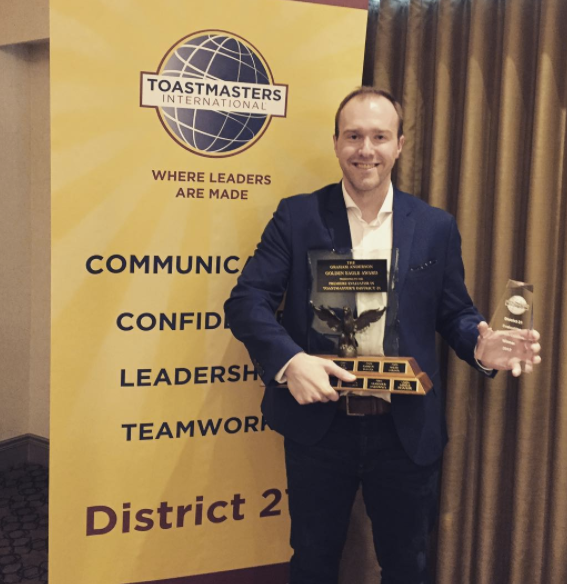
Previous "20 questions" interviews:
20 questions with @heiditravels
20 questions with @katecloud
20 questions with @manthostsakirid
20 questions with @blockchaingirl
20 questions with @piedpiper
20 questions with @stellabelle
20 questions with @budgetbucketlist
20 questions with @rogerkver
20 questions with @allasyummyfood
20 questions with @the-alien
20 questions with Janina Storace
20 questions with @mrs.steemit
20 questions with @andrarchy
20 questions with Scott Young
20 questions with Jesse Heiman
20 questions with @dragosroua
20 questions with Chelsea Dinsmore
20 questions with @sirwinchester
20 questions with Ludvig Sunström
20 questions with Kyle Eschenroeder
20 questions with @roelandp
20 questions with Tim Brownson
20 questions with Sean Ogle
20 questions with Henri Junttila
20 questions with Hal Johnson
20 questions with Farnoosh Brock
20 questions with Manny Kess
20 questions with John Goehrke
20 questions with Sunny Lenarduzzi
20 questions with The Cranky Flier - Brett Snyder
20 questions with Shawn Murphy
20 questions with Leo Babauta
20 questions with Jacob Staudenmaier

Interesting guy, specially for a "professional procrastinator" as myself!
When are you publish the "20 questions to @ned"?
Downvoting a post can decrease pending rewards and make it less visible. Common reasons:
Submit
I'm a bit guilty of procrastinating from time to time as well!
As soon as @ned gets me the answers :)
Downvoting a post can decrease pending rewards and make it less visible. Common reasons:
Submit
Great interview - thanks for posting. I'm intrigued by the concept of tiny/mini habits - I just found a terrific summary of Stephen Guise's book Mini Habits here.
Downvoting a post can decrease pending rewards and make it less visible. Common reasons:
Submit
I'm glad you enjoyed it! (And thanks for sharing that link!)
Downvoting a post can decrease pending rewards and make it less visible. Common reasons:
Submit
You're most welcome :)
Downvoting a post can decrease pending rewards and make it less visible. Common reasons:
Submit
Great interview. I subscribe to Steve's newsletter, been following his career for a while now. And now I am following you @wadepaterson and will check out your other interviews. Thanks!
Downvoting a post can decrease pending rewards and make it less visible. Common reasons:
Submit
Very cool, @michaelbkearney! I really enjoyed my conversation with Steve.
Thanks for the follow. I'm always working on lining up fresh interviews, and as you can see above, there are about 30 that already live on my Steemit blog.
Downvoting a post can decrease pending rewards and make it less visible. Common reasons:
Submit